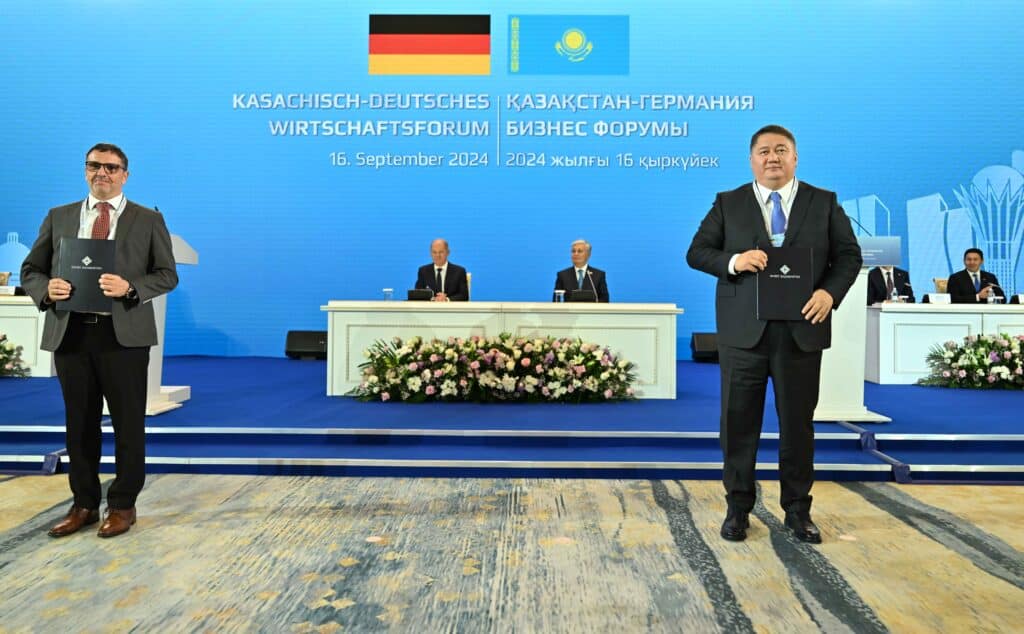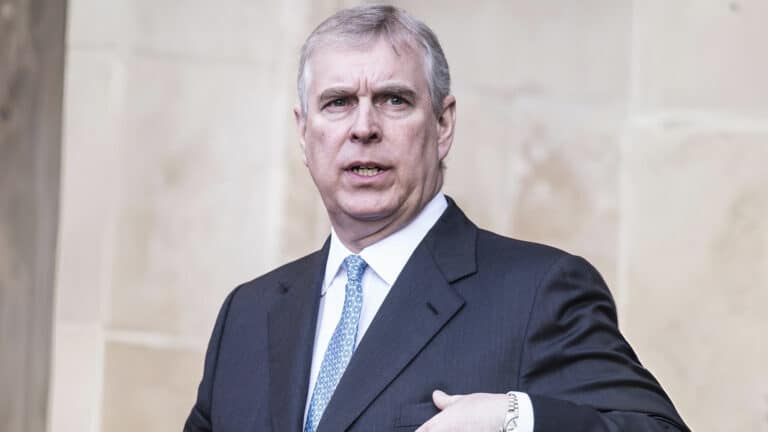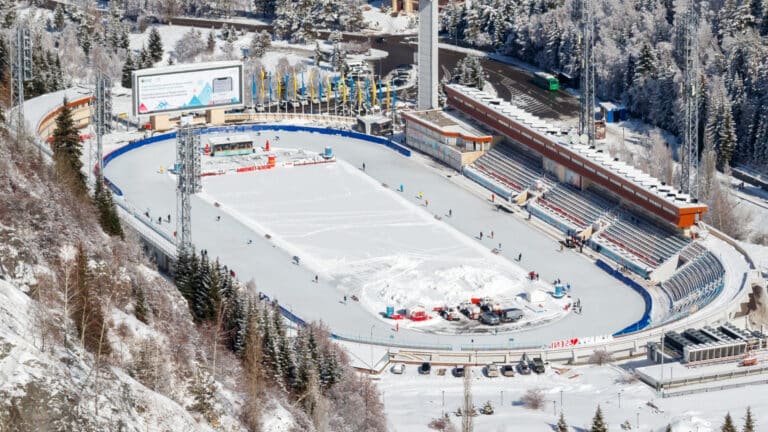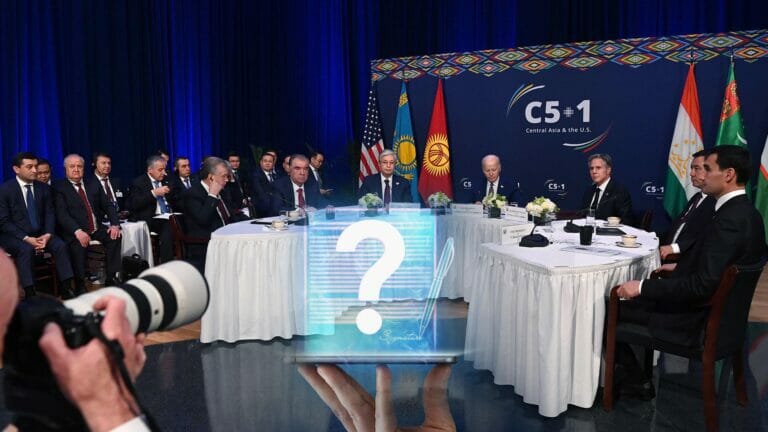
Kazakhstan and Germany have agreed to jointly build an international airport in the Special Economic Zone (SEZ) Khorgos-Eastern Gates, the President’s Office reported.
On Sep. 16, 2024, Kazakhstani and German officials signed 23 documents, including an agreement on the construction of the international airport in the Jetisu region, during the Kazakhstan-Germany Business Forum in Astana, chaired by President Kassym-Jomart Tokayev and German Chancellor Olaf Scholz.
The agreement was signed by Kazakhstan’s Vice Minister of Transport Talgat Lastayev and Managing Partner of Skyhansa Jürgen Grötzbach. Under the arrangements, more than $500 million in investments will be allocated for the project, which is also expected to create 300 new jobs.
The Jetisu region’s administration has already provided a land parcel for airport construction. The investor will begin the project as soon as the investment agreement is signed.
Project background
The initial plan to build an airport in the Jetisu region appeared in March 2024. At the time, the CEO of Skymax Technologies, Erik Shortanbayev, presented the project, while investors from The Hansa Consortium expressed their willingness to invest around $520 million in it. That same month, Jetisu region authorities also signed a memorandum of understanding with the investing company.
Construction of an international airport project was expected to create 700 jobs for servicing passenger and cargo flights.
Alongside the airport construction, investors intend to develop general-purpose aviation in the Jetisu region. Development of airport infrastructure is also part of the project. By 2032, the airport’s territory is expected to be expanded along with new hotels and a shopping and entertainment center.
The international airport is set to be launched in 2027. By 2032, the project’s second stage, which includes additional facilities like hotels and entertainment centers, will be implemented.













